Supa Topcheta is a soup that every child in Bulgaria loves and starts eating from an early age. The tender meatballs, together with the finely chopped vegetables, delightful pasta, and the egg-milk mixture added at the end, are definitely to the little ones’ taste.
Beloved by many and regularly presented on the dinner and lunch table, especially during the winter months, this soup is a must-try if you’re cooking for the whole family. Here is an easy-to-follow guide for making delicious Supa Topcheta at home.
What Makes Supa Topcheta So Special?
What distinguishes this traditional Bulgarian dish from meatball soups from other countries are spices. In particular, dry savory and parsley are vital ingredients in this soup. In Bulgaria, savory is an annual plant grown in numerous home gardens and picked and dried when it flowers.
The other thing that distinguishes it is the egg-milk mixture added at the end, which is called “Zastroika” in the Bulgarian language. Typically, people will pour it in when the soup is already cooked, and about 10 minutes have passed since you remove it from the heat.
You can make Supa Topcheta with minced pork or beef or a mixture of both. Whichever option you choose, you’re sure to have a flavorful, nutritious soup that everyone will want to try!
Tools
Here is the list of tools that you need to have in order to make this Supa Topcheta – Meatball Soup recipe.
Ingredients
Supa Topcheta consists of two main parts: the meatballs and the soup. Here are the ingredients required to make them.
For The Meatballs
The pork shoulder is the best cut if you want to mince the meat yourself. You can add pork breast to make the minced meat a little fattier.
Note
If you want the taste to be authentic, it is best to use this spice, but if there is no shop for Bulgarian products near you, you can substitute it with dry oregano and a little dry thyme.
For The Soup
Use a fresh egg and 1-2 spoons of yogurt. It is best to use Bulgarian yogurt, which is a little more acidic than the others. If you can’t find it, you can use regular yogurt and add 1 teaspoon of vinegar.
Instructions
Let’s get cooking! Follow the steps below for a satisfying meatball soup made in Bulgarian style.
Step 1: Flavor The Minced Meat
Add the washed and drained rice, salt, savory, ground black pepper, and chopped fresh parsley to the minced meat. Mix well and leave the minced meat in the refrigerator to harden until it’s time to form the balls.
Step 2: Cook The Soup
In the cooking pot, heat the oil with a little water at medium temperature, and add the finely chopped onion, carrot, and bell pepper. Simmer for about 2-3 minutes, stirring regularly, until fragrant.
Then add finely chopped potato and celery. Simmer again for about 2-3 minutes, stirring regularly. Add the salt and 2 quarts of water, then bring it to a boil.
Step 3: Shape The Meatballs
While you are waiting for the water to boil, you can shape your meatballs.
Take some of the minced meat by placing it in a line on the chopping board, as shown in the image. With the knife, divide the line into equal parts. If you get smaller parts at the end, add a little more minced meat. Shape each part into a small ball.
Step 4: Add The Meatballs And Noodles To The Soup
Reduce the heat to low and add the meatballs one at a time. Gently stir and bring the soup to a boil over medium heat. Boil the soup for about 15 minutes.
Add the noodles and stir gently. Let the soup simmer on medium heat for another 10 minutes. Then turn off the heat and stir again. Let the soup rest with the lid open for about 10 minutes.
Step 5: Add The Egg And Yogurt Mixture
In a bowl, mix the egg and yogurt well. When the soup stops smoking, you can add the egg-milk mixture to it, but it is necessary to temper it beforehand.
To temper, add a little of the hot soup stock to the bowl with the egg-milk mixture and mix well, then pour into the soup, stirring quickly.
Sprinkle finely chopped fresh parsley on top, and your Supa Topcheta is ready!
How To Store This Dish
To store the leftover soup, put it in an airtight container and place it in the fridge. The soup lasts for about 3 days when refrigerated. If you need to keep it for longer, you can also freeze it, which extends the shelf life to about 3 months.
FAQs
If you want to learn more about this traditional Bulgarian soup, check out these commonly asked questions!
Try This Unique Version Of Meatball Soup!
Supa Topcheta is the perfect dish when you want to try out a new, more special version of the classic meatball soup. The addition of the egg and yogurt mixture gives this soup a creamy consistency without being too chunky.
How do you feel about today’s recipe? If there is any feedback you want to give, don’t hesitate to leave a comment below. You can also support the website by liking and sharing this post. Thank you so much, and see you again soon!
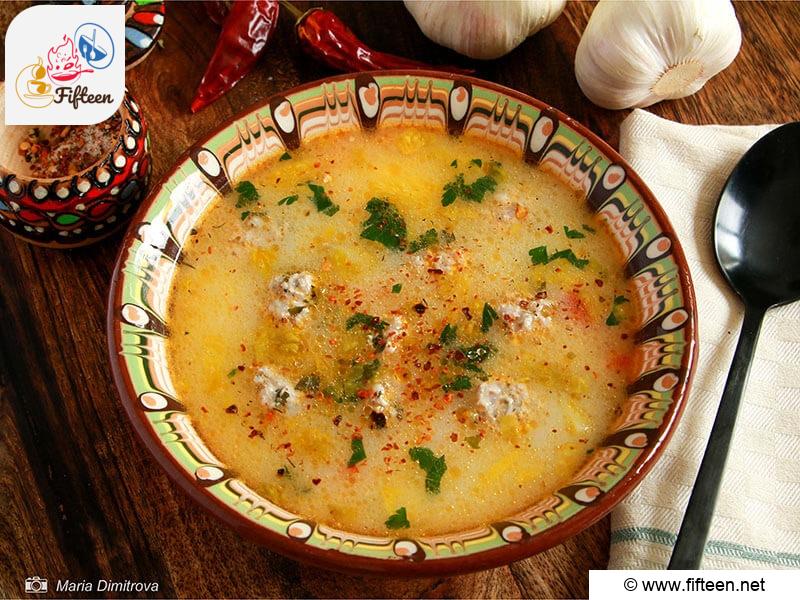
Authentic Bulgarian Supa Topcheta – Meatball Soup
Ingredients
For the meatballs
- 0.55 pounds minced meat, pork or beef
- 2 tablespoons white rice
- 1 teaspoon dried savory
- 0.5 teaspoons ground black pepper
- pinch of salt
- 2 tablespoons chopped fresh parsley
For the soup:
- 2 quarts of water
- 5 tablespoons oil
- 1 carrot
- 1 potato
- 1 red bell pepper
- 1 onion
- 1 stalk of celery
- 1 ounce of noodles/spaghetti
- 0.66 tablespoons salt
- 1 egg
- 2 tablespoons yogurt
Instructions
- Add the washed and drained rice, salt, savory, ground black pepper, and chopped fresh parsley to the minced meat.
- Mix well and leave the minced meat in the refrigerator to harden until it’s time to form the balls.
- In the cooking pot, heat the oil with a little water at medium temperature and add the finely chopped onion, carrot, and bell pepper.
- Simmer for about 2-3 minutes, stirring regularly, until fragrant.
- Add finely chopped potato and celery. Simmer again for about 2-3 minutes, stirring regularly.
- Add the salt and 2 quarts of water, then bring to a boil.
- While you are waiting for the water to boil, you can shape your meatballs.
- Take some of the minced meat by placing it in a line on the chopping board, as shown in the image.
- With the knife, divide the line into equal parts. If you get smaller parts at the end, add a little more minced meat.
- Shape each part into a small ball.
- Reduce the heat to low and add the meatballs one at a time.
- Gently stir and bring the soup to a boil over medium heat.
- Boil the soup for about 15 minutes.
- Add the noodles and stir gently.
- Let the soup simmer on medium heat for another 10 minutes.
- Then turn off the heat and stir again.
- Let the soup rest with the lid open for about 10 minutes.
- In a bowl, mix the egg and yogurt well.
- When the soup stops smoking, you can add the egg-milk mixture to it, but it is necessary to temper it beforehand.
- To temper, add a little of the hot soup stock to the bowl with the egg-milk mixture and mix well, then pour into the soup, stirring quickly.
- Sprinkle finely chopped fresh parsley on top, and your Supa Topcheta is ready!
Video
Notes
- The total time is estimated based on 8 servings.
- If you can’t find dried savory, use a little dry thyme and dry oregano instead.
- It is best to use Bulgarian yogurt, which is a little more acidic than the others. If you can’t find it, you can use regular yogurt and add 1 teaspoon of vinegar.
- For an easy version of Fide pasta, buy very thin spaghetti and break it into small pieces.


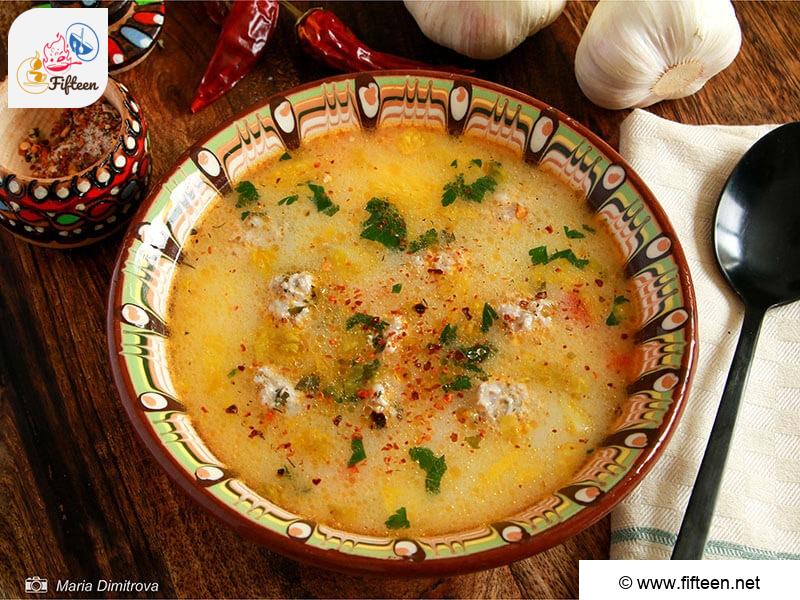
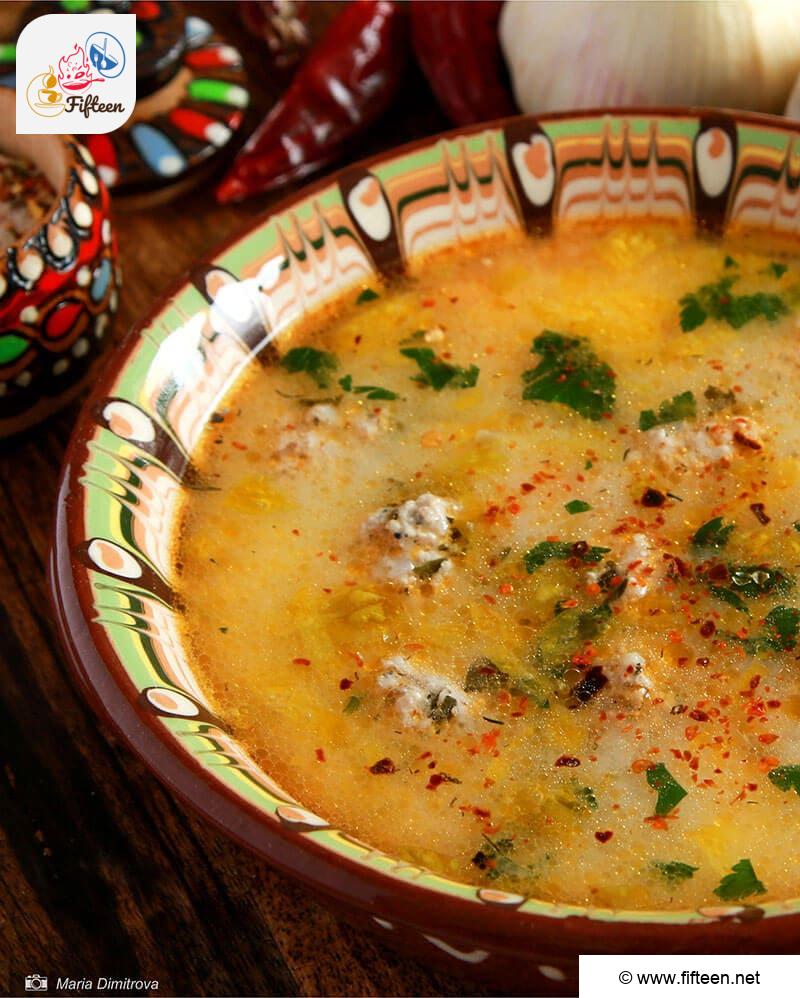
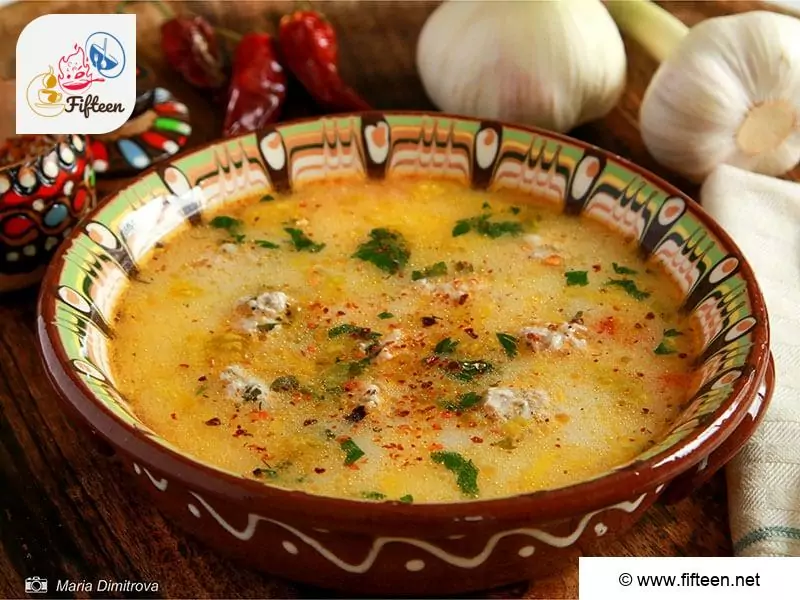
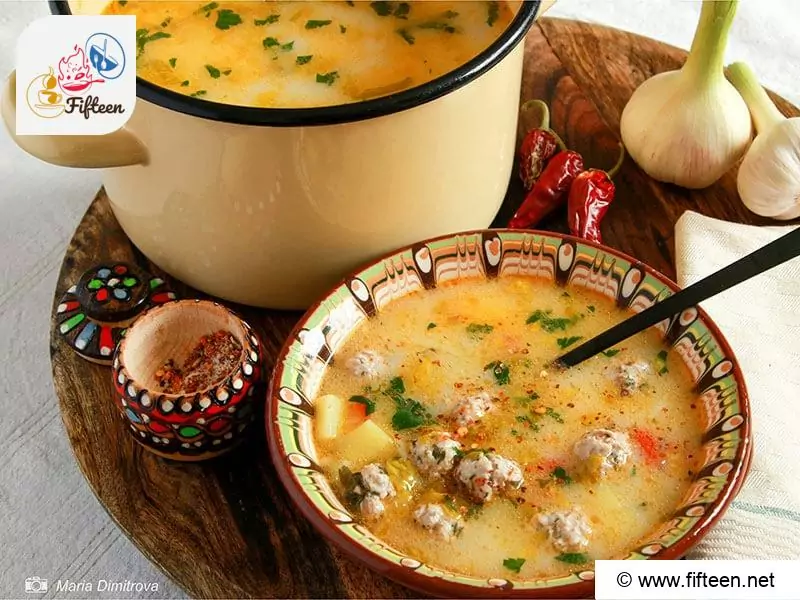
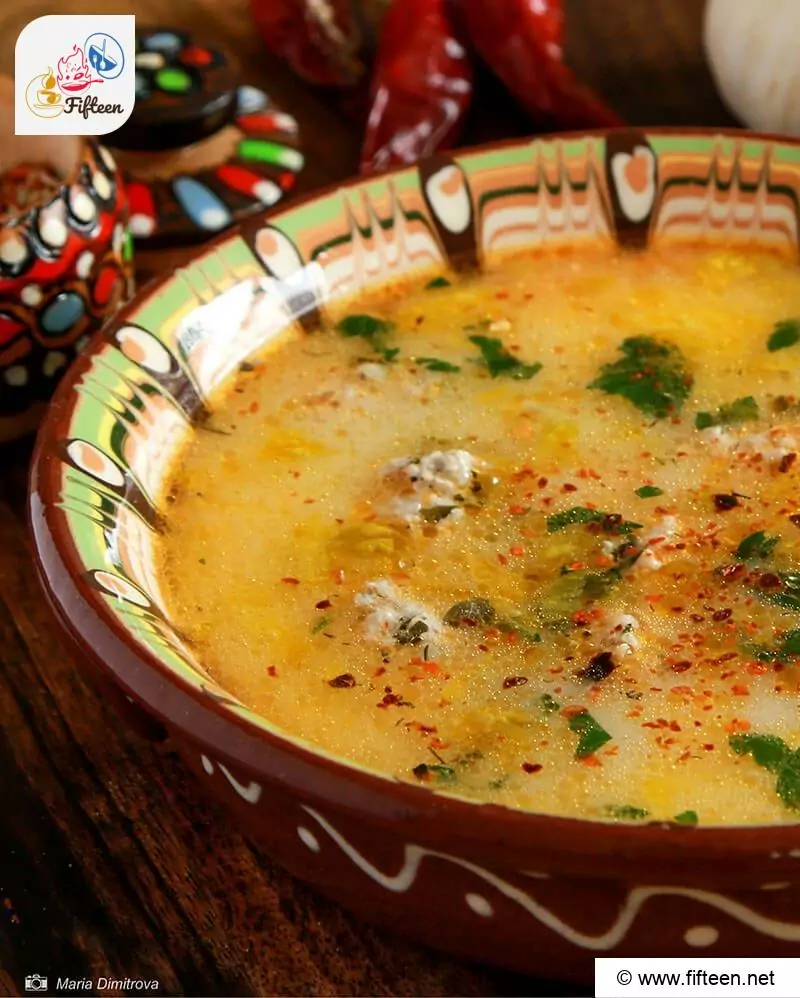
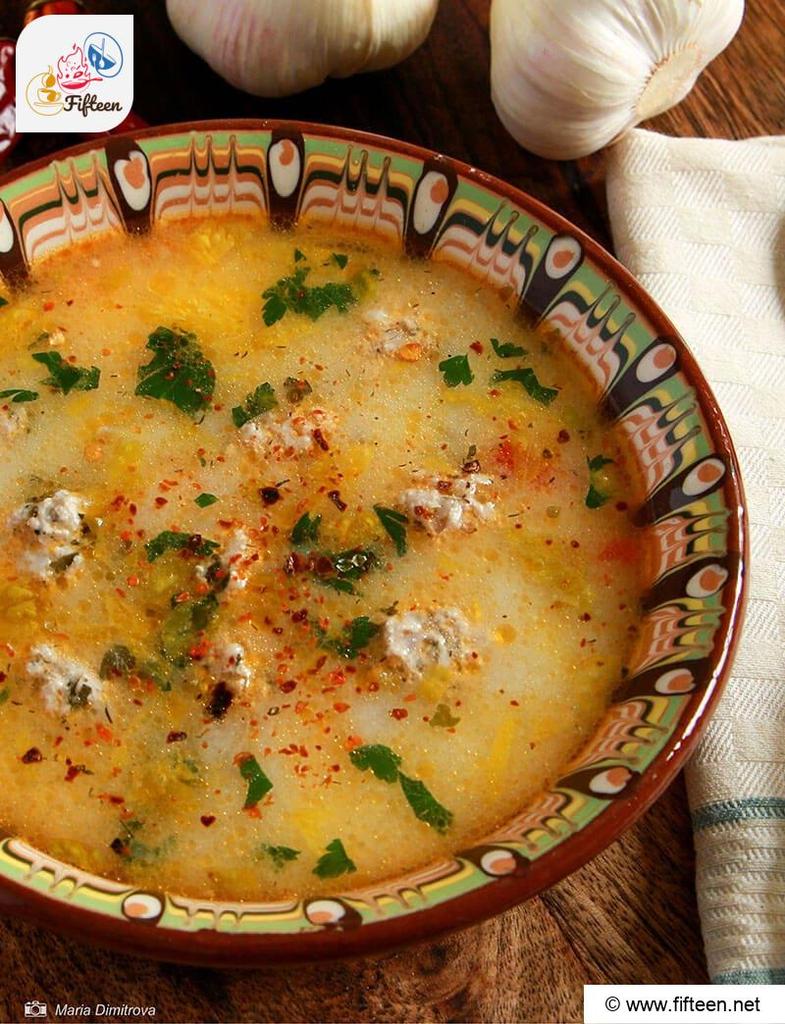
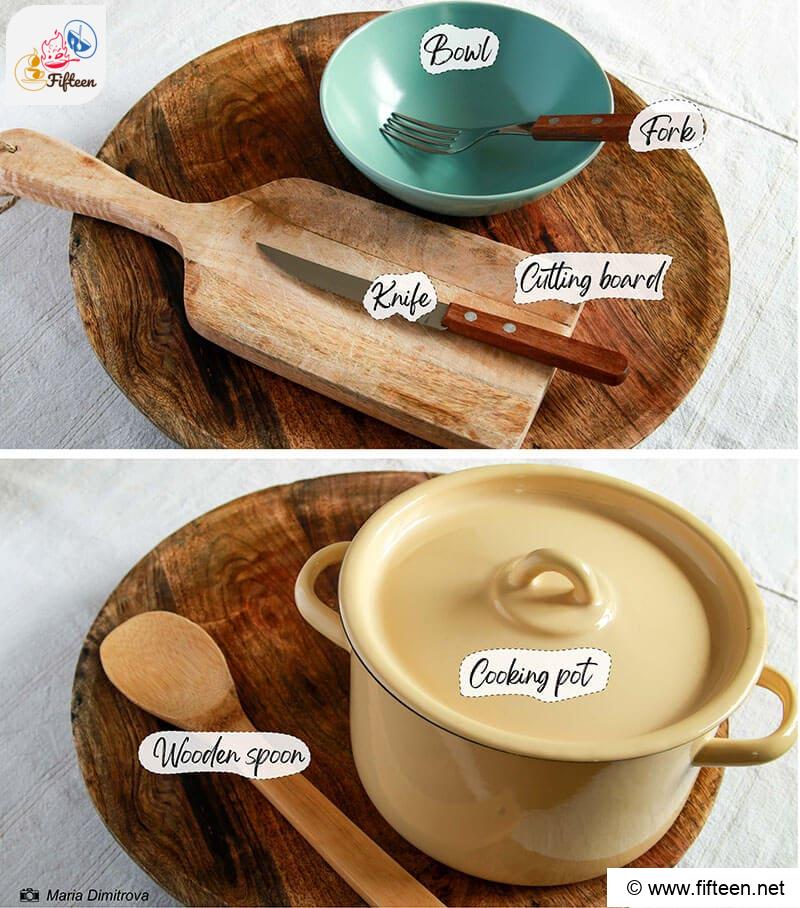
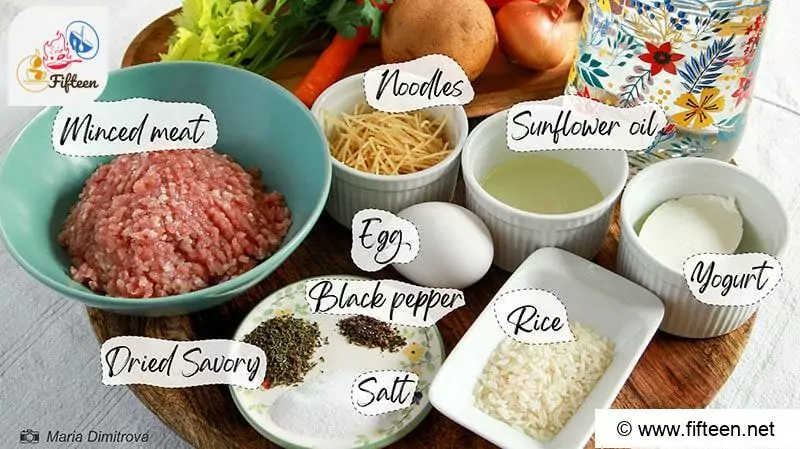
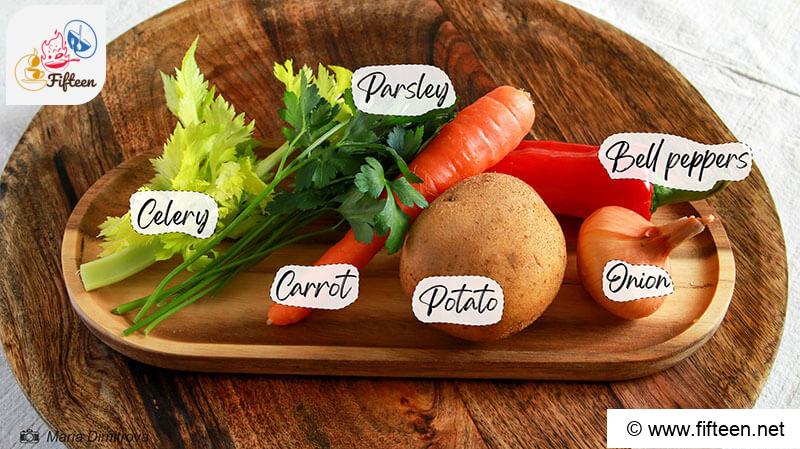
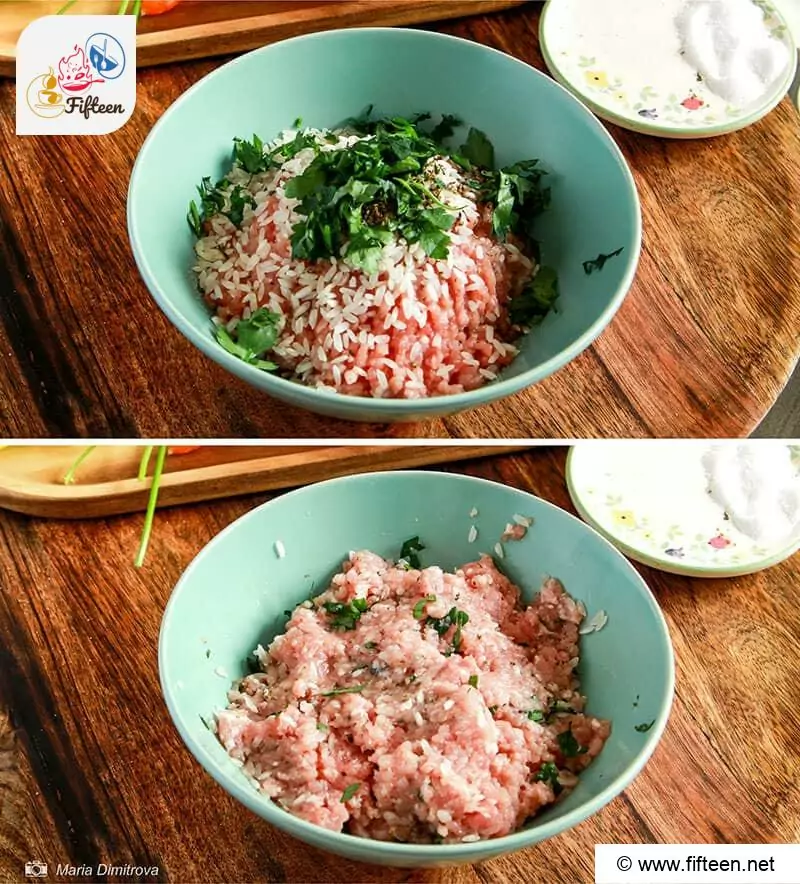
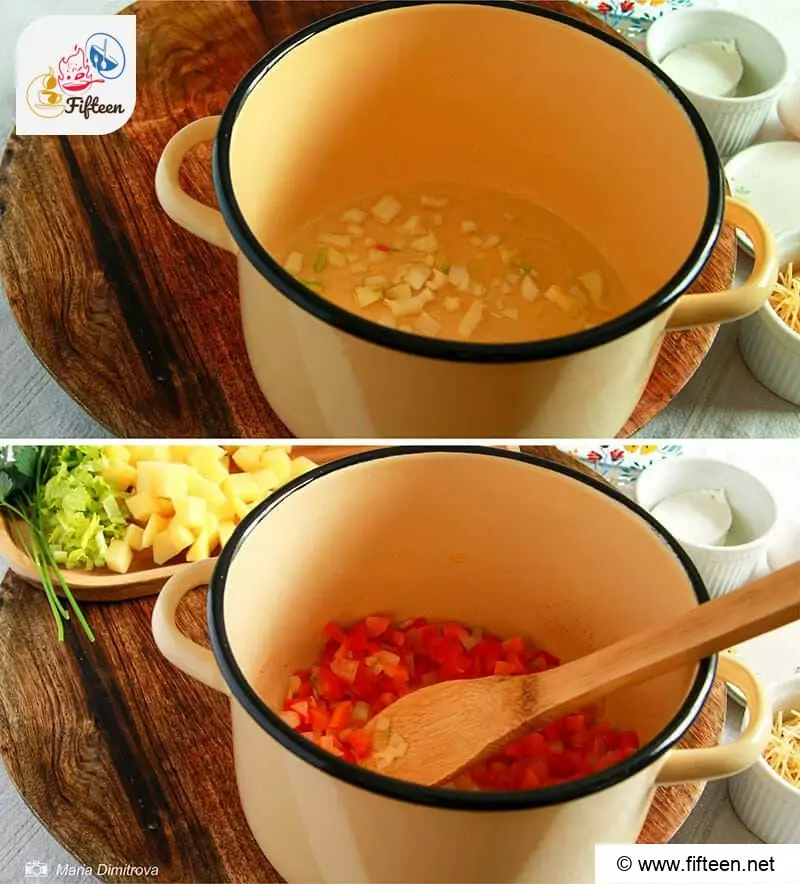
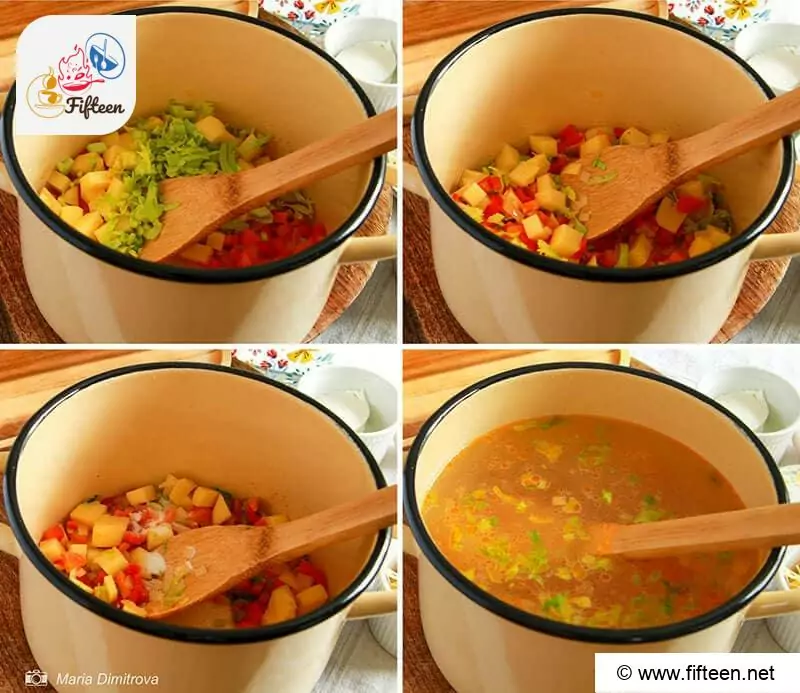
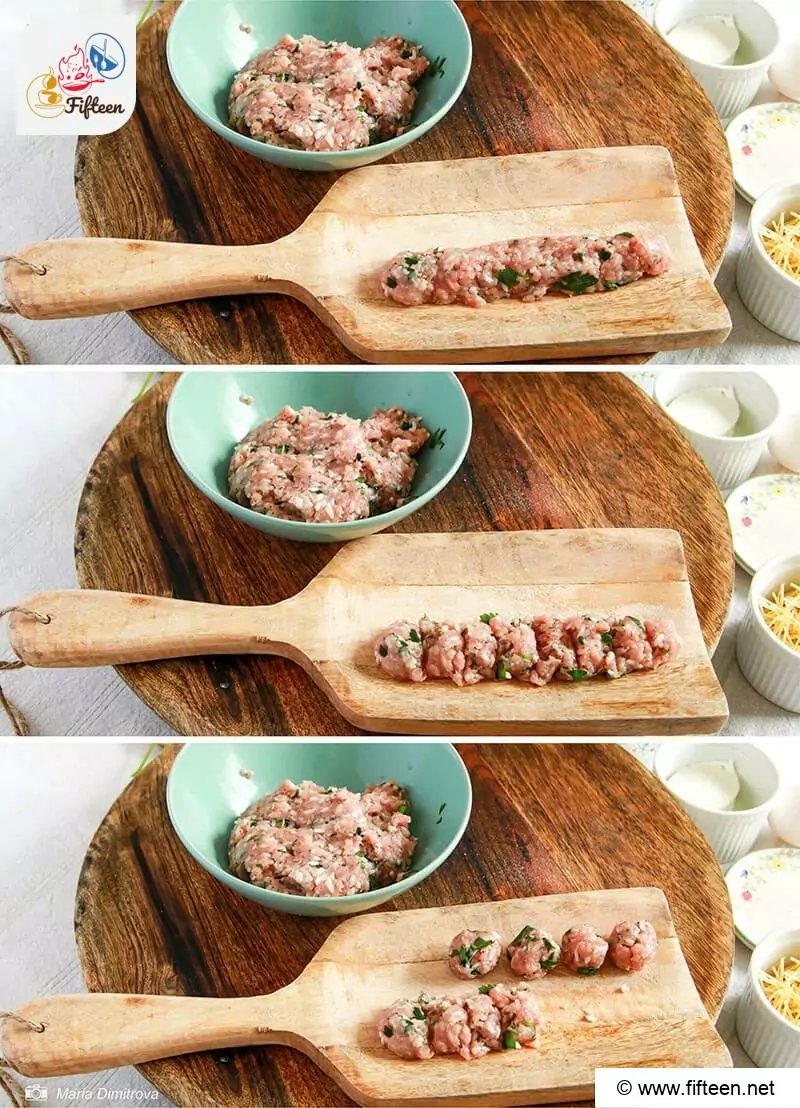
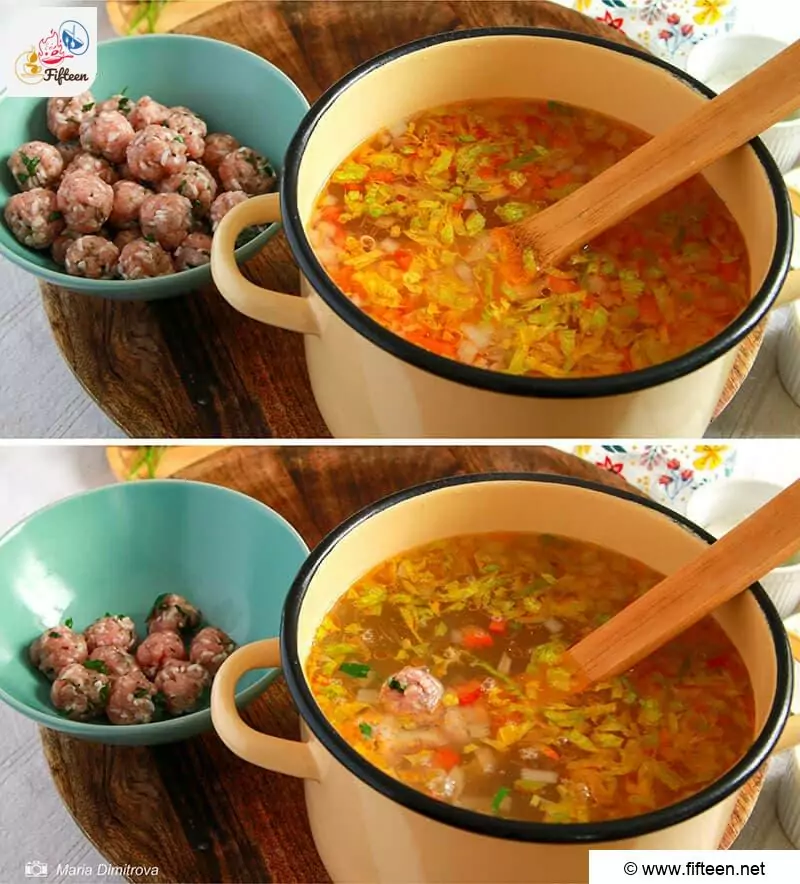
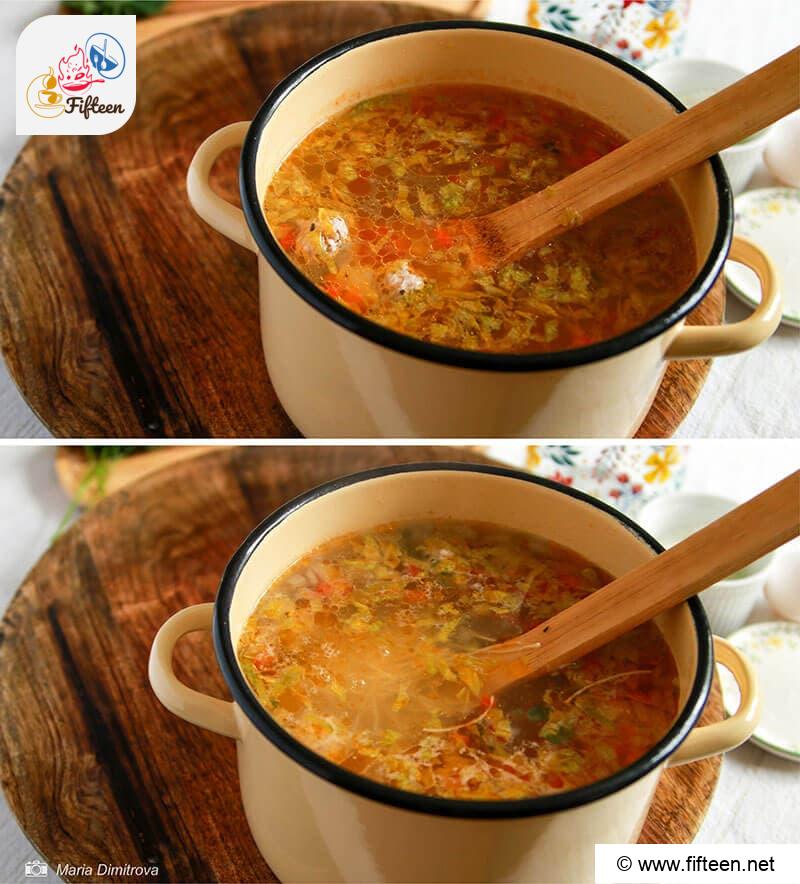
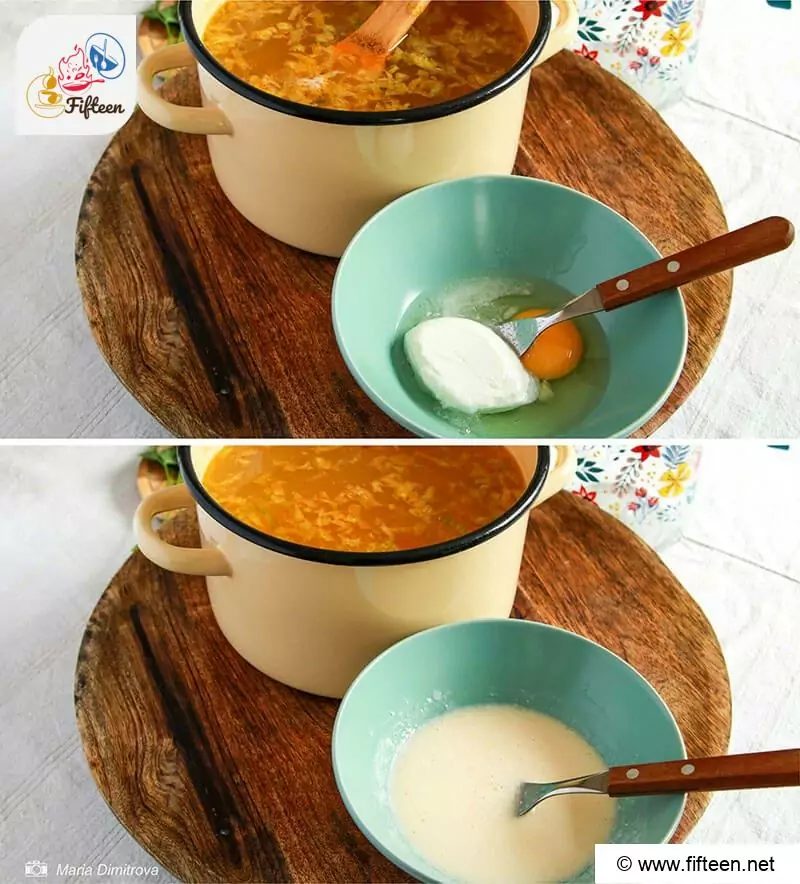
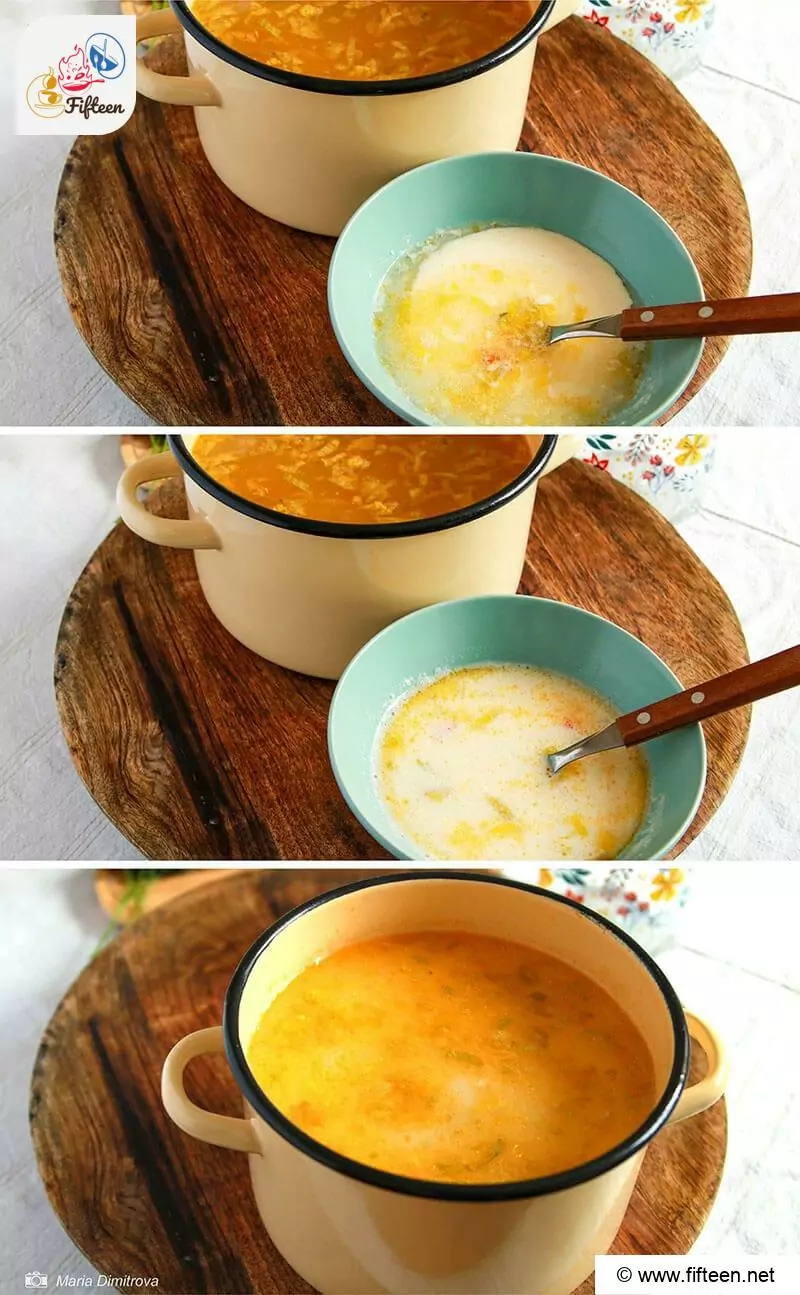
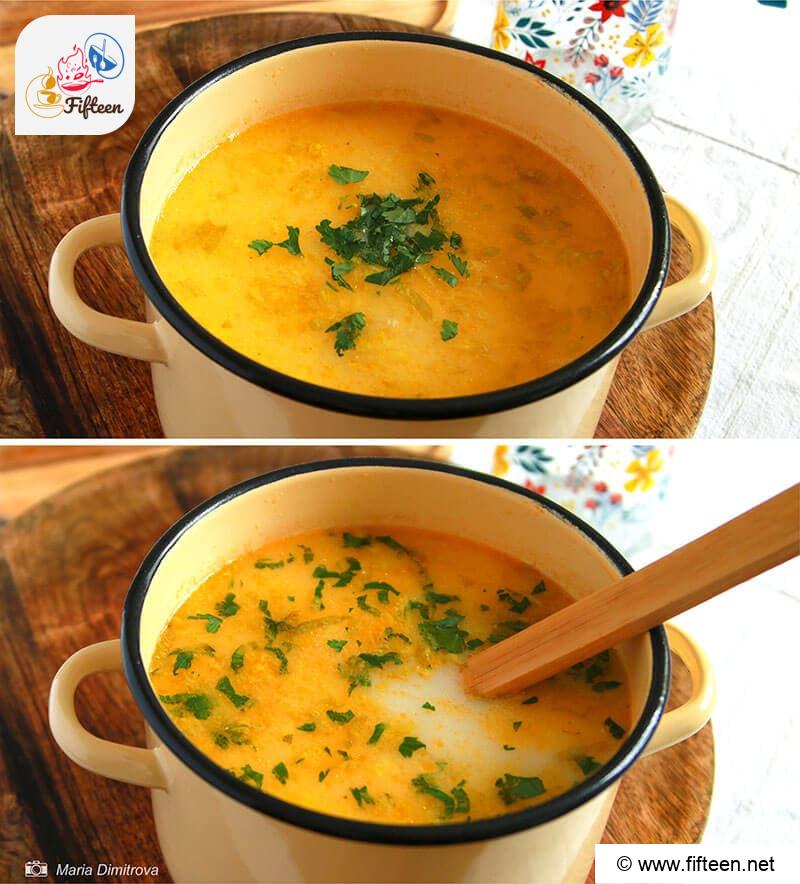
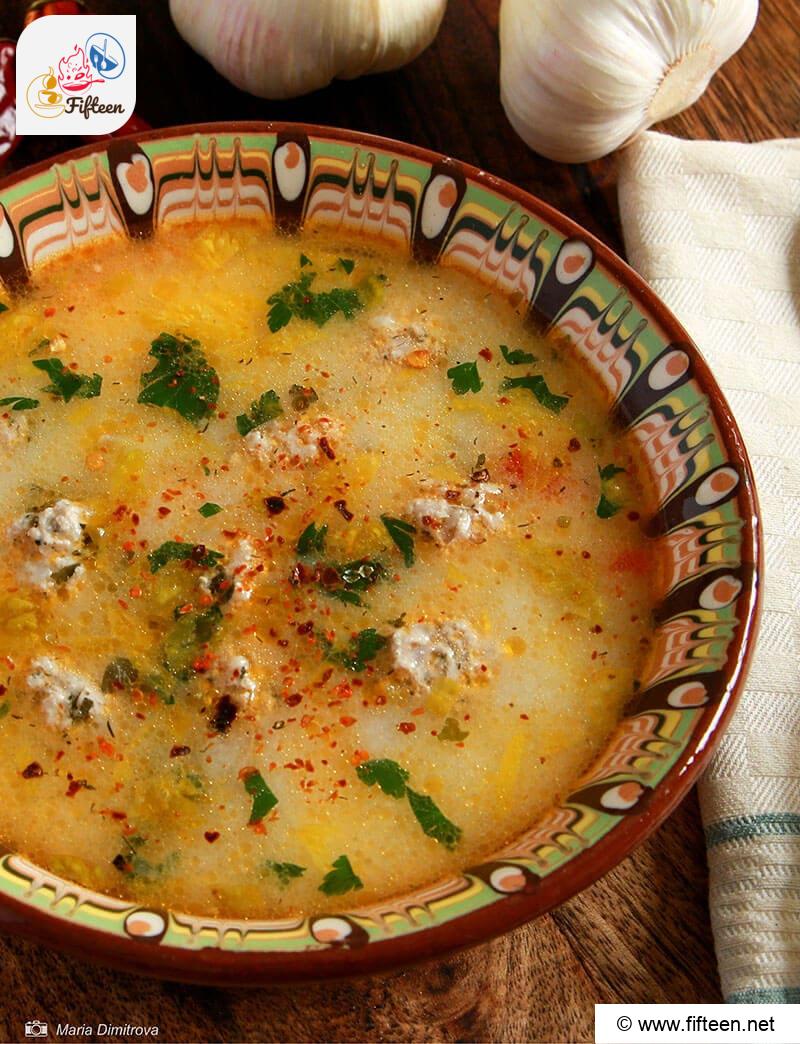
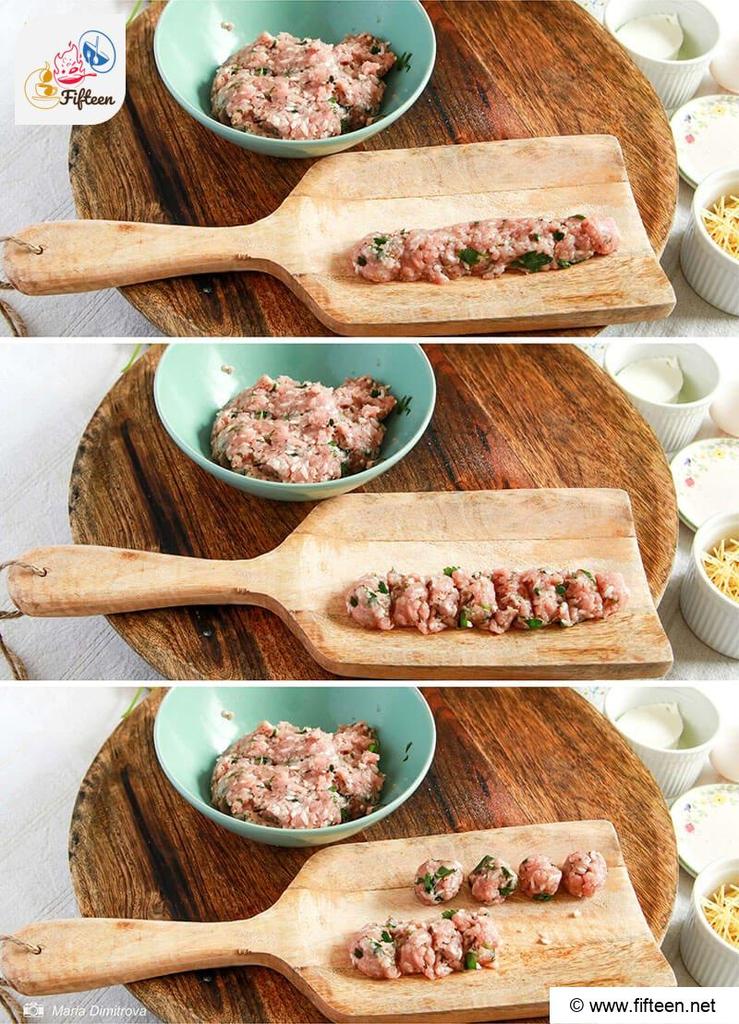
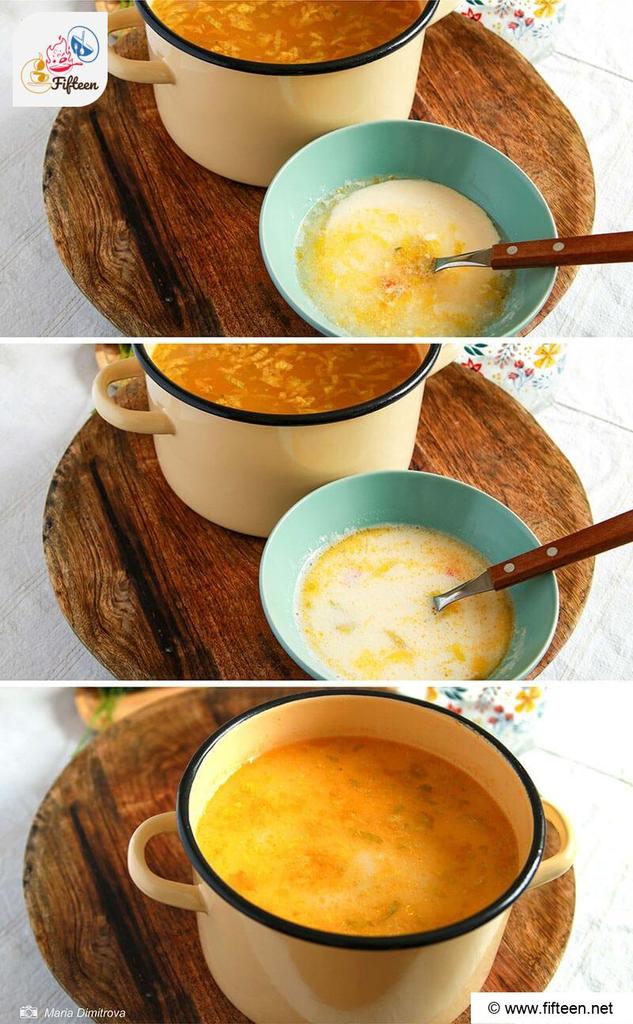
Mia Dimitrova
Content Writer
Expertise
Home Cooking, Meal Planning, Food Styling, Food Photography, Culinary Storytelling, Cooking-video Maker, European Food Content Creator, Bulgarian Food Evaluation Expert
Education
Sofia University “St. Kliment Ohridski”
Completed a thesis titled “Bulgaria on a Plate: A Photographic Journey through our Gastronomic Legacy.”
European Culinary Arts Academy
Maria Dimitrova, or Mia, is a Contributing Writer from Sofia, Bulgaria. Her work beautifully intertwines the rich flavors of Bulgarian and European dishes with their visual storytelling, capturing the soul of each cuisine. Through engaging content and stunning photography, Maria explores the intricate relationship between food’s aesthetic appeal and cultural history.
Specializing in home cooking, food styling, and photography, she brings European culinary traditions to life, offering a unique glimpse into Bulgaria’s gastronomic heritage. Maria’s expertise highlights her deep appreciation for culinary art and invites her audience to embark on a flavorful journey through Europe’s diverse food landscape.